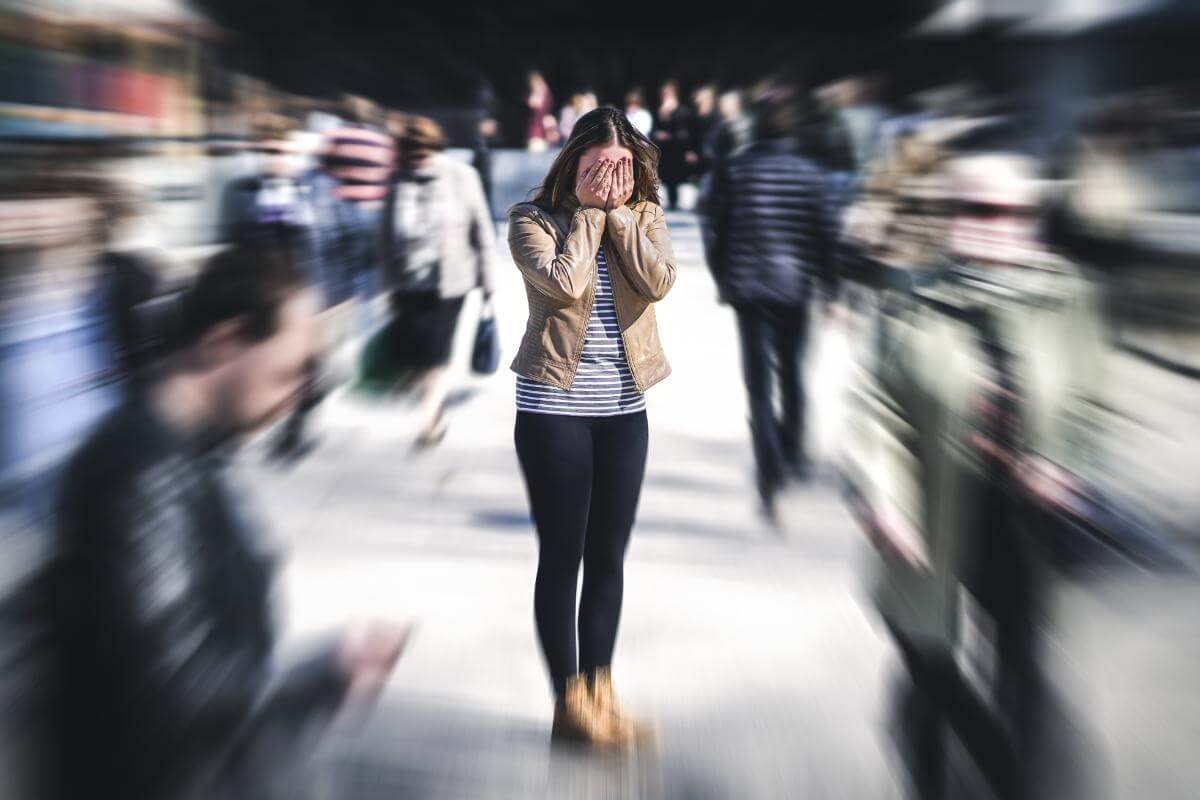Most people are familiar with anxiety. Situational anxiety is a part of life. For example, speaking in public, taking an exam, or preparing for a significant medical procedure are all experiences that naturally cause anxiety. However, an anxiety disorder is a mental health diagnosis that affects approximately 40 million adults in the U.S. When an individual struggling with addiction is also beset by an anxiety disorder, the two co-occurring conditions can influence each other negatively.
To learn more about the connection between anxiety and addiction, contact a professional anxiety treatment in Louisiana.
Anxiety Disorders
Those who do not suffer from an anxiety disorder are often unaware of how different it is from normal, situational anxiety. Everyday anxiety occurs around a specific event and is a feeling of worry or dread that lessens on its own after the stressful event has passed or dissipates by speaking with a trusted person who can alleviate the worry through wise words or a pep talk.
The medical diagnosis of anxiety disorder encompasses similar feelings of worry, dread, and stress, but they can become crippling, and the victim is powerless to control or prevent these symptoms.
An anxiety disorder is often debilitating, controlling someone’s life and limiting their options. A nervous flyer can eventually figure out how to board an airplane and fly. Someone with an anxiety disorder may simply never fly. They cannot be admonished or comforted out of their anxiety any more than someone with diabetes can be “fixed” by the good intentions of friends who say, “Just try to get over it.” The lives of anxiety disorder sufferers are often very limited by their condition.
Symptoms of Anxiety
There are several kinds of anxiety, including:
- Generalized anxiety disorders in which sufferers cannot shake the crippling worry and stress sparked by everyday issues, even when there is no tangible reason. Thus their job, relationships, health, even the fact that they have anxiety will cause these sufferers to worry beyond what is tolerable. One person described it as “worrying in advance about things that probably won’t even happen.”
- Social anxiety disorders afflict a very large number of Americans—over 10%–and involve fear of being judged by others, embarrassing themselves in public, or otherwise becoming overwhelmed in any social situation. Being forced into social encounters does not help these people and can, in fact, be deeply traumatic.
- Panic disorders create even more severe symptoms and can co-occur with generalized or social anxiety disorders.
The symptoms of anxiety include:
- Tachycardia/elevated heart rate
- Irritability and feeling on edge
- Excessive nervousness
- Feelings of imminent doom
- Increased heart rate/tachycardia
- Rapid breathing
- Trembling
- Excessive sweating (flop sweat)
- Sleep difficulties
- Stomach and digestive issues
Anxiety and Addiction
Anxiety and addiction frequently co-occur. That’s because it is common for people who suffer from an anxiety disorder to resort to self-medication, easing their discomfort, inhibitions, and stress through the use of drugs or alcohol.
If you suffer from anxiety and choose to use drugs or alcohol to mute your symptoms, you likely won’t have the perspective or insight to know your limits. The side-effects of addiction are even more damaging to the brain and body systems than anxiety, so someone who cycles between anxiety and intoxication is creating more problems than ever. These cycles won’t end without professional support best provided in professional rehab, preferably one with a mental health treatment program.
Contact a Professional Addiction Treatment Center for Help with Anxiety and Addiction
Recovery for someone with co-occurring anxiety and addiction disorders is possible with proper treatment at a treatment center where medical and therapeutic staff fully understand anxiety and how it intersects with substance abuse.
A reputable treatment center will use numerous therapy programs to help people with anxiety and addiction issues, including:
- Cognitive-behavioral therapy
- Dialectical behavior therapy
- Trauma therapy
- Individual therapy
- Group therapy
- Substance abuse programs for the whole range of addictions
- Drug detox center
Do not wait. Reach out to a local, reputable treatment center to begin the conversation.

